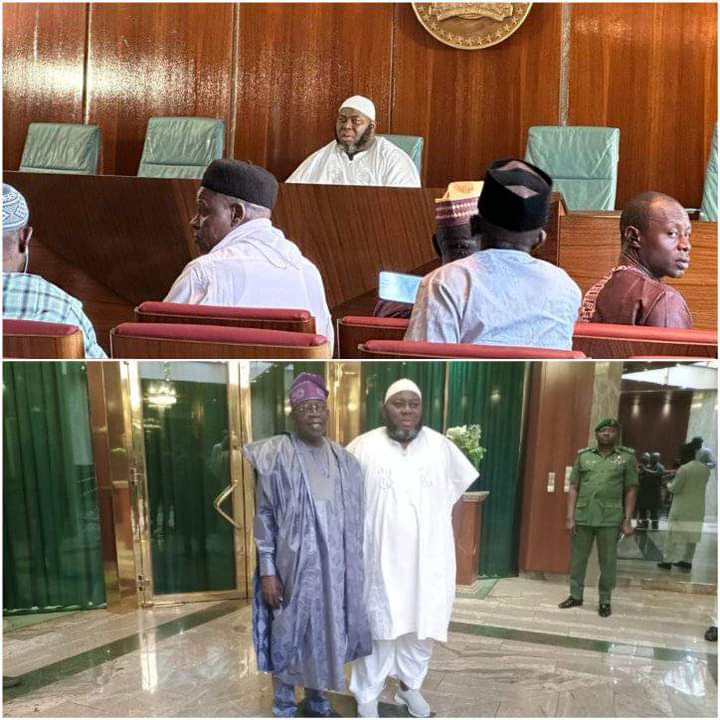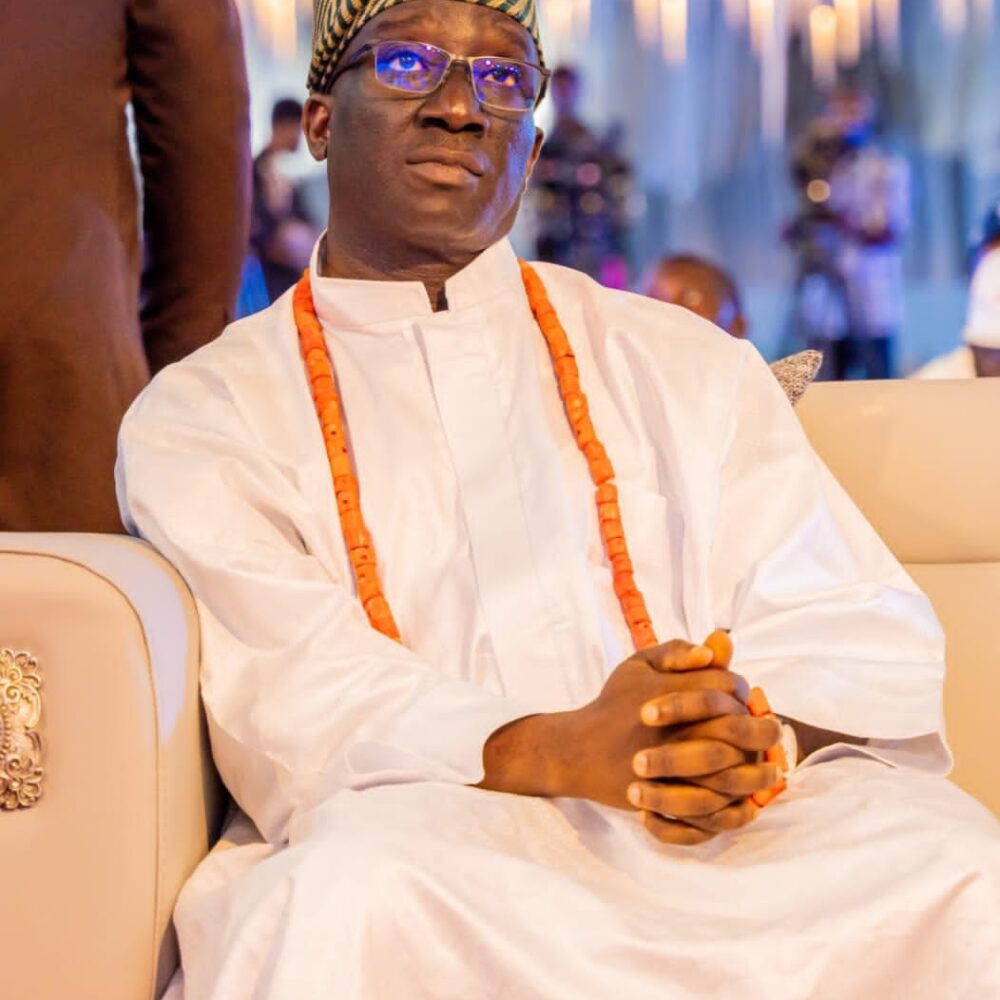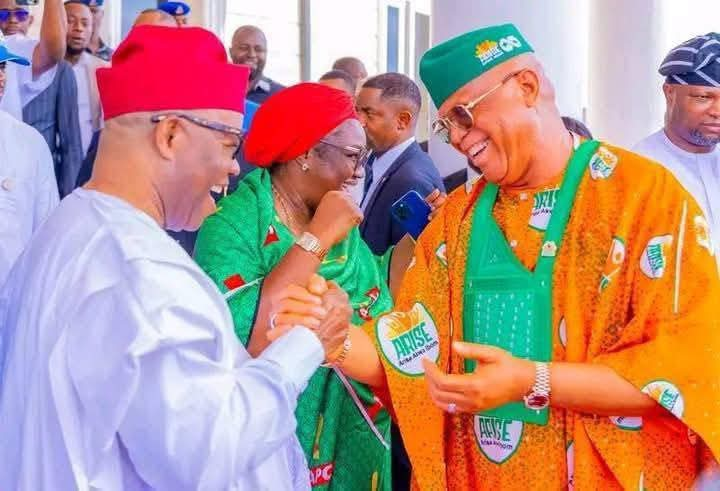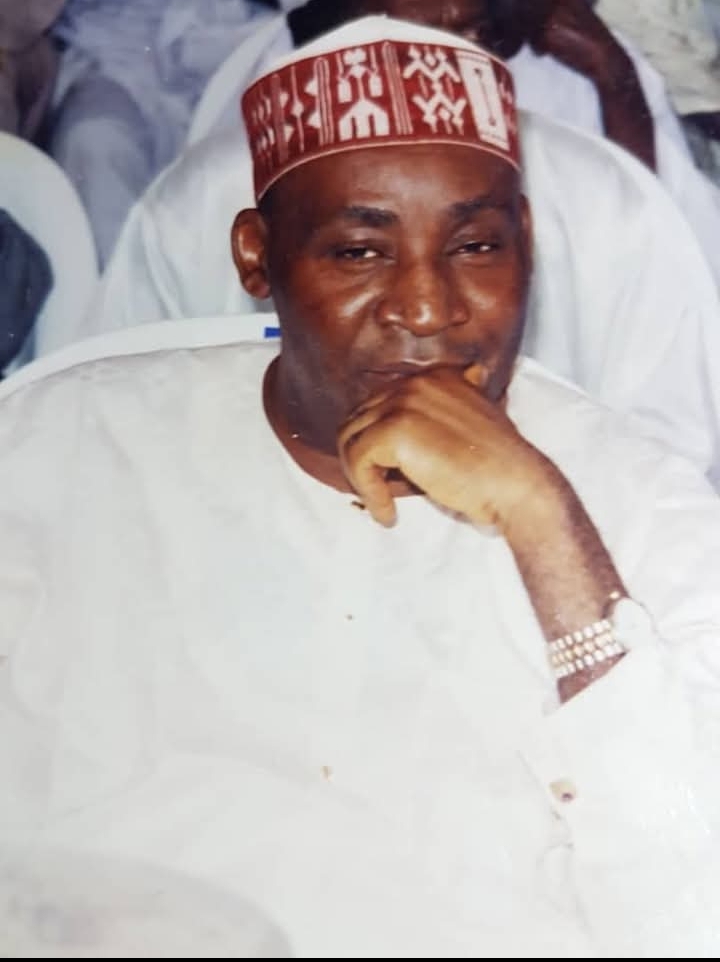In 1948, Israel’s first Prime Minister, David Ben-Gurion, thought of the best way to protect his country’s security information from invasive media toxins. He summed his strategy up in one short sentence: “Take the thief and make him guard.” But a thief would remain a thief even if he is made the chief hunter. A maxim of the Yoruba drives this home: Twenty years after you’ve made the palm wine tapper king, he still won’t stop casting furtive glances at the neck of the palm tree (Bi ó lé l’ógún ọdún táa ti fi ad’ẹ́mu j’ọba, kò ní yé ọrùn ọ̀pẹ ẹ́ wò). There is an Italian Island called Sicily; it gave the world the term ‘mafia’ to describe its homegrown group of outlaws who sold protection and competed violently with the law. Increasingly failing states exhibit this tragedy of falling into the hands of mafia dons. That point appears to be where Nigeria is today. Mafia gunmen are on parade –and are in charge, almost officially.
I watched Niger Delta chief militant, Asari Dokubo, addressing the press inside the Presidential Villa, Abuja, on Friday after his meeting with President Bola Tinubu. He exuded the very awe of power as he waxed lyrical boasting brazenly of his efficiency as a protection entrepreneur. The man sat with absolute confidence; directly behind him was Nigeria’s national Coat of Arms, the solemn symbol of the authority of the government and of the sovereignty of the Nigerian State. Only the president, and, maybe, the vice president are statutorily allowed that privilege in that complex. But the militant enjoyed it on Friday and nothing happened. That is what you do when you think you have the king behind you. Everyone and everything, including the law, rose to meet this big man at our seat of government.
Dokubo spoke not like a sovereign but as the sovereign. He sells security and the Nigerian Armed Forces are his competitors. At the press conference, the man maximally used the hallowed grounds of the State House to advertise his business and do a very negative review of the ‘enemy’ and their operations. He attacked the Nigerian Armed Forces using the very visible platform of their Commander-in-Chief. He said our forces and their men were felons who would rather steal than protect what they were employed to guard. Then he adroitly advertised his protection business and rammed its ‘efficiency’ down the throat of a terrorized nation. The big man from the creeks announced that he was in charge of security from our Federal Capital, Abuja to one, two, three, four, five, six states of the country. Nigeria has 36 states. Dokubo said he is in charge of six. He looked foolish Nigeria in the eyes, raised his voice and sensationally attempted a destruction of his competitors, our soldiers: “There is a full-scale war going on,” he announced while declaring that “the blackmail of the Nigerian state by the Nigerian military is shameful. They said they do not have enough armament and people listen to this false narrative. They are lying. They are liars. I repeat, they are liars because I am a participant. I am a participant in this war. I fight on the side of the government of the Nigerian state in Plateau, Niger, Anambra, Imo, Abia and Rivers. And in Abuja today, you are travelling to Kaduna on this road. It is not the army that makes it possible for you to travel to Abuja or travel to Kaduna, and vice versa. It is my men, employed by the government of the Nigerian state, stationed in Niger. Today, you travel to Baga, you go to Shiroro, you go to Wase. We have lost so many men and in all these engagements, we don’t even have one percent of the armament deployed by the Nigerian military; one percent, and we have had resounding success. So, this blackmail must end. They have enough resources to fight. Instead of fighting, they are busy stealing…” That was excellent mafia marketing unfurled, but I think it was reckless and unfortunate – especially given where those words were said and who said them. If Fox has disproportionately big eye balls, should that fact be heard from the mouth of the village Hen? It is true that there are bad eggs everywhere, including among our soldiers, but the armed forces are the very last twines holding together the Nigerian contraption. The day we allow their humiliation by entrepreneurs of violence and unwashed street gangs, we will all be in trouble.
I have read the very tepid responses from the army and the navy. They both denied being thieves. One said their accuser should name names; another took a politically safe lane and merely listed its achievements in curtailing crude oil theft. The replies were not as they would be if the accuser were an ordinary foul-mouthed lout. But this one was a presidential guest who had just enjoyed a photo op with the Commander-in-Chief. I pity the village hunters; they did not know how to say it that the village head’s mother was a witch. The sky is indeed falling and the world is ending. If you were the one who said what the militant said, I am very sure your ankles and knee caps would be in some soldiers’ play plate now. But our Generals heard the iron man from the creeks very clearly and turned the discourse to a farcical rendition of Fela’s “you be thief, a no be thief.” Khaki has become leather finally!
We had always thought that it was only our oil pipelines that were put under the care of Nigeria’s surplus mafia guns. But Dokubo has revealed an extension of the frontiers of the privatization of our nation’s security. I read the army’s response; I read the navy’s too; I did not see any word shooting down Dokubo’s claim that he is the commander of the forces that have brought peace and security to critical parts of northern and southern Nigeria. He said, and he was emphatic, that it was not our armed forces that are keeping Nigeria safe, especially in the northern corridor: “It is not the army that makes it possible for you to travel to Abuja or travel to Kaduna, and vice versa. It is my men…” That is what he said, right in the Villa with the Coat of Arms solidly behind him as his star witness. I think that was huge, and gross, and embarrassing! Is it true that Asari Dokubo is in charge of our security? All our security forces should come clean on this issue which I think is even more important than the tug of war over who does per-second stealing of barrels of Nigeria’s crude oil. A private citizen declared in our State House that he was the reason why Nigerians travel in peace from our federal capital to the capital of northern Nigeria and the government and its forces are keeping mum. If Dokubo’s claim is true, then what it says is that our case is worse than we thought. It means the government has ceded our sovereignty to bands of men with errant guns. It means the country has moved from fragility to failure.
How did that man find the knob of the presidential door? Is he the landlord’s son? I have always known that the child of the house does not knock before entering the house. Dokubo boasted that the president was “a father-figure” to him and that he had enjoyed with our new leader filial embrace and hugs for more than thirty years. I heard that too and felt that it was not funny. Where was this fellow 30 years ago and what were his acts of engagement with the Nigerian state at the turn of this century? His life is an open book; he has never hidden anything, including his ways and beliefs. His swagger suggests he is an insider in this new government. I congratulate him. No one in government is uncomfortable because the elephant is leaving the forest for the city. Ordinarily, the farm owner should have no problem slapping any intruder who abuses his ridges. A planter is looking on, looking away while his farm becomes footpath for delinquent dogs and errant goats. Something is not right; some things are wrong somewhere. President Bola Tinubu’s minders should tell him that a king does not receive every visitor that comes knocking at the palace door. They should also tell him that not every guest he receives at the Villa should henceforth address the press in the State House. The Asari that I saw there on Friday had no regard for the institutions of the Nigerian state. He spoke as a competitor for state power and control, almost as a parallel Commander-in-Chief with his own army “stationed in Niger.” Tinubu as a Yoruba proper should have no problem recollecting what untrimmed Iroko collects from town and king when it matures.
Foxes and hawks are not just fast and cunning; they are bold. But those are not the only two things they have in common. Both are lethal predatory beings. They exist to prey on hens and their chicks. The farmer who entrusts his poultry to their care does so to his sorrow. We can learn from them and their ways. The state, its peace and security take a bow where gangs are the law. John Dickie, in his ‘Cosa Nostra: The Definitive History of the Sicilian Mafia’ (2004) describes the situation with chilly poignancy: “Mafiosi…were entrepreneurs in violence, specialists who had developed what today would be called the most sophisticated business model in the marketplace. Under the leadership of their bosses, mafia bands ‘invested’ violence in various commercial spheres in order to extort protection money and guarantee monopolies…In the violence industry, the mafia boss…acts as capitalist, impresario and manager. He unifies the management of the crimes committed…, he regulates the way labour and duties are divided out, and controls discipline amongst the workers…It is the mafia boss’s job to judge from circumstances whether the acts of violence should be suspended for a while, or multiplied and made fiercer. He has to adapt to market conditions to choose which operations to carry out, which people to exploit, which form of violence to use…”
There are other scholars. One of them is emeritus Professor Anton Blok, Dutch cultural anthropologist and author of ‘The Mafia of a Sicilian Village, 1860-1960: A Study of Violent Peasant Entrepreneurs’ (1974). He presents, in that book, a vivid description of a Sicily where the state failed to monopolise the use and control of physical violence and estate owners turned to “armed men and field guards” for protection, and insecurity and lawlessness reigned. Russian Professor of Sociology, Vadim Volkov, is yet another scholar on the violence industry created and nursed by non-state actors. He published a seminal work with the title: ‘Violent Entrepreneurs: The Use of Force in the Making of Russian Capitalism’ (2016). A reviewer said the author “entered” the shady world of what he called “violent entrepreneurship”,… explored the economic uses of violence and coercion in Russia in the 1990s where violence played “a crucial role in creating the institutions of a new market economy,” where “competition among so-called violence-managing agencies—criminal groups, private security services, private protection companies, and informal protective agencies associated with the state” reigned. Some of the groups, Volkov notes, “wore state uniforms and others did not, but all of their members spoke and acted essentially the same and were engaged in the same activities: intimidation, protection, information gathering, dispute management, contract enforcement, and taxation. Each group controlled the same resource—organized violence.”
Are our armed forces working? Yes. Are they doing enough? They can improve on their performance, especially now that they have a new Commander-in-Chief with the swag of knowledge. The last three weeks have been epochal. We have watched Tinubu putting his feet where angels fear to tread: Deregulation of petrol supply and sales; deregulation of foreign exchange supply and sales. Deregulation of education and its funding? That one is still coy; the head of its ogre peeks inside the president’s breast pocket. But the man has taken those unforgettable steps and has moved on to other things in an ‘I dey kampe’ manner. The people are not complaining, at least loudly. An Ibadan person told me five days ago that he once asked General Ibrahim Babangida where he got the guts to put Nigerians through his many experiments and experimentations. IBB, the person said, submitted that Nigerians were a very resilient people. There is no situation you throw at them that they will not adapt to. Unlike the goat that fights back when it hits the wall, there is always a space for Nigerians to shift to beyond the wall. We have seen that fact come to play with the N500/per-litre petrol and the hike in the price of everything. The rugged chassis of the Nigerian has absorbed the shock and he is moving on, even if with sputtering bouts. Nigerians have taken more and they are likely to take even more but handing over their lives to street gangs and creepy creatures should not be part of the bargain.
Ruling a state should not be a Captain Flint kind of voyage. Who is Captain Flint? Explore the fictional universe of Robert Louis Stevenson to refresh who that character is. Should the Oluode (chief hunter) be found sharing his apron with his dogs? May it never happen! That is why I counsel that the president can, and should, appreciate his backers and enforcers without allowing them turn his presidency to another Black Sails series. The times are hard but the wind is behind the sails of the new president. Whatever he does with his voyage is his to choose. If he likes, let him bring pirates on board his ship. Àgunlá, àguntètè. We will write the story when the buccaneers do their thing. But Nigerians are battle-weary; they deserve peace and good life, at least for once. That is why we will not keep quiet in the face of an insidious capture of our state by mafia dons.





